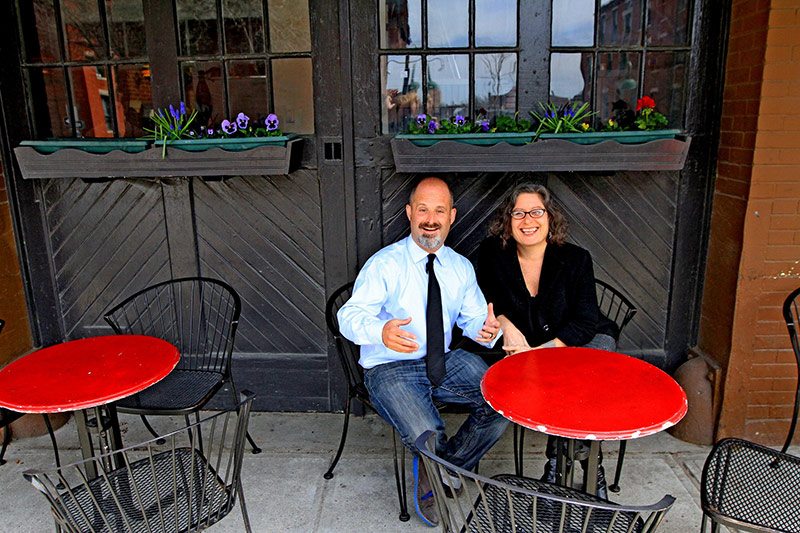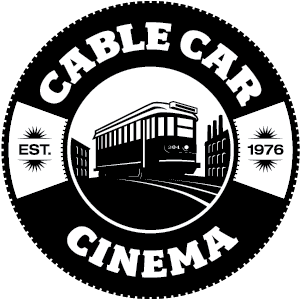
Providence Journal • Kate Bramson
Co-owners of the Cable Car Cinema on South Main Street, Daniel Kamil and Emily Steffian, have grander plans than showing movies at the single-screen theater. They hope to develop an art house cinema to show independent films, host film festivals, offer media education workshops and house artists-in-residence.
John Haley, chief scientific officer at two companies, discovered a product that attracts blue mussels, which aren’t easy for fishermen to cultivate. He thinks manufacturing this rope-like material may revolutionize Rhode Island’s shellfish industry by allowing commercial processors to create multiple harvests of blue mussels every year.
Both projects have won the Rhode Island Foundation’s fourth annual Innovation Fellowship. Longtime philanthropists John and Letitia Carter fund the fellowship to encourage Rhode Islanders to solve issues, problems and challenges facing the state.
Selected from 354 applicants, this year’s winners will be honored Wednesday night at the Veterans Memorial Auditorium in Providence. Each fellowship carries a $300,000 prize over three years.
Foundation President and CEO Neil D. Steinberg, chairman of the seven-member selection committee, likes Kamil’s and Steffian’s ideas to focus on independent films created by women, minorities and people with diverse backgrounds and build upon the state’s cultural offerings. He likes Haley’s idea that manufacturing the cord to attract blue mussels may create jobs and more opportunities in the state’s shellfish industry.
More broadly, Steinberg noted that winners over four years represent a broad cross-section of the state’s economy, in industries recognized as some of the best hopes for moving the state forward. They’re working to create retail businesses, encourage entrepreneurs, solve health challenges, meld design with education, use technology to advance the digital-textile industry and create a culinary hub.
Kamil and Steffian don’t foresee changes at the Cable Car. They’re seeking new space for their “Providence Cinematheque” and hope four screens will seat up to 400 people. The Cable Car seats 100. They hope artists in residence will film Rhode Island-themed movies that would be archived here.
Kamil, 45, and Steffian, 49, review far more movies than they could show — films Kamil says are “lost” to ordinary viewers. They recognize that people can download and watch anything these days, but they still see relevance in movie-going and cinemas.
“We’re a neighborhood meeting place,” Kamil explained. “The only thing we’re selling is the social experience. … But I think people still want to go out. … If we do our job right … the community will be excited and proud of having it here.
Haley, 64, of Providence and Little Compton, helped found Bioprocess Algae and Bioprocess H2O. In his work there, he discovered a property that attracts bacteria. To test it, he attached the product to the mooring of his boat in Bristol harbor — and, he says, “serendipitously” discovered that 700 pounds of blue mussels stuck to it over time. They were beautiful, pure, all the same-size adult mussels, he said: “But I wasn’t in the mussel business.”
At first, he viewed it as a “curiosity,” but he has since begun working with Roger Williams University and others to test the material and determine how to manufacture it. He believes his “blue mussel spat attachment cord” may eliminate the wait fishermen now have for natural mussel-spawning to occur.
Reflecting on his research, he offers this advice: “Don’t ever stop trying new things. … And you never know what’s going to turn into something.”

